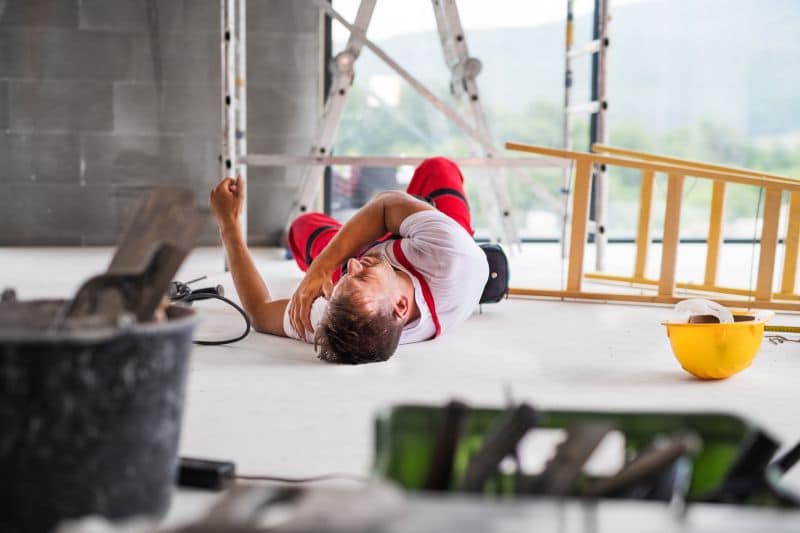Slip and fall injuries at work are common, but that does not make them easy to prove for the purpose of receiving compensation for your injuries. You might think that slipping and falling at work automatically makes it the responsibility of your employer, but things can be a bit more complicated than that. So, read on to learn more about receiving compensation for a slip and fall injury at work.
Situations where you can claim benefits for a workplace injury
To receive compensation for an injury sustained at work, you must show that the injury occurred because of your employment. There are two ways to show this:
-
Injury Arising out of the Employment
Arising out of employment generally means that you were injured while performing the regular tasks of employment. In this case, the injury occurred as a result of the risks inherent to the nature of employment. This is true even in today’s technological workplace. Employers can be held liable for injuries sustained by employees working remotely in some circumstances. There are different legal tests that a court might apply to the facts of a case to determine whether an injury arose out of employment, but an experienced attorney will know what evidence is relevant to your claim and help to prove your case.
-
Injury in the Course of Employment
You could have a claim for compensation even if you were not technically working at the time. Course of employment looks at time, place, and activities surrounding employment. For instance, you might have slipped and fallen while walking into or leaving a job site, while on break, or during a workplace sanctioned event after normal hours of employment. Again, there are legal tests courts apply to determine whether “course of employment” criteria are met on a case by case basis. An experienced attorney will know how to prove your case.
Understanding the definition of employer negligence
You can sue your employer to recover compensation because of a slip and fall injury if the employer was negligent in taking care of the job site, training employees on proper use of equipment, or for failing to otherwise secure the safety of the workplace. Employer liability can be difficult to prove. For instance, is your employer negligent simply because there was a puddle of water on the premises where you slipped and fell? The answer will depend on the facts of the case.
On one hand, it is usually your employer’s responsibility to ensure that the premises are safe and such messes are cleaned up. In this case, you may be able to hold your employer liable for any injury suffered as a result of slipping on the puddle. On the other hand, if there was some break in the causal chain, such that some intervening force created the hazard and that hazard was not reasonably foreseeable by your employer, your employer may try to avoid liability.
Common reasons for slip and fall injuries at workplaces
Soft tissue, nerve, and bone damage can all result from slip and fall injuries. These types of injuries might take weeks or years to experience symptoms. It is important to keep medical evidence and other records relevant to the injury to prove a claim for compensation.
Slip and fall injuries at work can result from the following situations:
- Water, oil, ice, or other slippery substances on the ground
- Uneven pavement or concrete
- Falling due to unkempt property or damaged work equipment
- Tripping on debris, wires, cables, cords, or any other hazards in the walkway
- No signage to mark wet or dangerous areas
- Poor lighting
The burden of proof falls on the injured worker bringing the claim for compensation. This means you will have to prove that the accident occurred as a result of the employer’s negligence, and not as the result of your own carelessness or failure to follow safety instructions and protocols.
Steps to be taken in case of a slip and fall injury at the workplace
The following are steps that should be taken when suffering a slip and fall injury.
- Seek proper medical attention: Your first step is to take care of your health. Seek medical assistance to have the injury thoroughly assessed as soon as possible. Save all medical records related to the injury.
- Report the incident to your supervisor: If you fail to report the injury to a supervisor, human resource liaison, or other designated official, your employer might claim that the incident never happened on the premises.
- Document all the details of the incident: Save medical bills related to the injury, document the details of the accident informally or as a part of your workplace reporting process, and obtain witness statements and contact information from people who might be able to corroborate what happened.
- Contact an experienced workers’ compensation attorney: It is advisable to avoid discussing the accident with an insurance company before you have discussed the merits of your case with an attorney. Insurance company interests are often opposed to your own. They may seek to minimize your employer’s liability and thereby reduce the amount of compensation available to you.
Successfully proving that your employer’s negligent act caused your workplace injury depends on several factors, as stated above. Contact a Fort Myers Personal injury attorney as soon as possible after the accident to safeguard your claim to rightful compensation.

